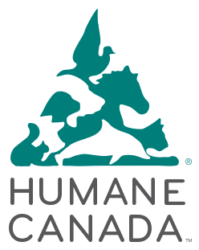Reports
Measuring Progress Toward a Humane Canada
We call ourselves Humane Canada, and that’s because it’s our vision: building a humane country. But how do we know if we, as the animal advocacy movement, are making progress toward that goal?
After much reflection and consultation with experts across the country, Humane Canada has developed a list of indicators that will help us measure how we are progressing in a diversity of issues – issues that affect companion animals, farm animals, wild animals, animals used in science: all animals.
Read full report here.
Collaboration in Cat Welfare Initiatives
This document is a how-to guide that is the result of a workshop bringing together experts who have had successful cat welfare programs by applying the common success factor of collaboration. The guidance includes best practices, identifies the key elements of successful collaboration, and provides advice to help cat welfare organizations engage with stakeholders in their communities.
Canadian Animal Shelter Statistics
Humane Canada gathers data on the number of animals entering humane society and SPCA shelters and the numbers adopted, returned to their owners or euthanized. This information provides a national picture of the important role shelters play in their communities.
Canadian Standards of Care in Animal Shelters
In 2013, Humane Canada brought together animal shelter thought leaders and stakeholders from across the country to establish Canadian shelter standards. The group accepted the principles of the Association of Shelter Veterinarians’ (ASV) Guidelines for Standards of Care in Animal Shelters as a foundational document and contextualized the document for use in Canada. Note that the Canadian document must always be read as a companion to the ASV Shelter Standards.
In 2017, Humane Canada reconvened the National Cat Overpopulation Task Force and completed a comprehensive, multi-stakeholder report on cat overpopulation, which acts as a five-year update of our ground-breaking 2012 analysis of cat welfare in Canada – the first report of its kind.
Humane Societies and SPCAs in Canada: A Comprehensive Look at the Sector
This report, available for download in both French and English, provides the first comprehensive analysis of Canada’s sector of humane societies and SPCAs. Using data from a cross-Canada survey and the Canada Revenue Agency’s Registered Charity Information Returns, we look at the sector’s contributions to Canadian society, the volunteer and financial support it receives and some of the challenges it faces.
Case Studies
Capacity for Care Case Studies
Capacity for Care (C4C) is an operations and management model that helps shelters better meet the needs of the animals in their facility. It creates the conditions necessary to provide shelter animals with the Five Freedoms, thereby improving the welfare of individual animals. Read about our three-year pilot project (2014-2017), in which we implemented C4C in six animal shelters across Canada, by downloading our final report for the program.
Toolkits
Accessible Spay/Neuter Toolkit
The Humane Canada report, The Case for Accessible Spay/Neuter in Canada, lays out the evidence for the benefits and savings of implementing spay/neuter programs and provides examples of successful initiatives that can be modeled in other communities. The report also makes recommendations for animal welfare organizations, the veterinary community, and governments to advance accessible spay/neuter. The extensive toolkit that accompanies the report includes educational webinars, additional case studies, implementation tools, funding guidance, advocacy advice and examples of promotional videos on spay/neuter initiatives.
Policy Platforms
Community-Supported Animal Sheltering Policy Platform
The COVID-19 pandemic greatly altered the way many municipalities and communities operate on a day-to-day basis. Across the country, animal shelters and animal care/services workers were deemed essential as emergency orders took effect. To prevent the spread of COVID-19, most shelters and animal care workers limited services and changed their operations to maintain physical distancing. Anticipating a shortage of staff and limited operations, shelters called on their communities for support, and those communities stepped up to help on an unprecedented level. For example, many shelters saw significant increases in the number of foster volunteers, allowing them to move most animals out of shelter during the crisis. Some of these COVID-related changes resulted in increased positive outcomes for animals, prompting many in the animal sheltering sector to suggest these changes become permanent. This document, based on and inspired by a policy platform first written by National Animal Care and Control Association and Best Friends Animal Society, outlines suggested policies and practices for shelters, humane societies, SPCAs, communities, and governments to implement that would enable them to maintain and enhance the gains made during the pandemic and rethink animal welfare and sheltering in a post-COVID world.

